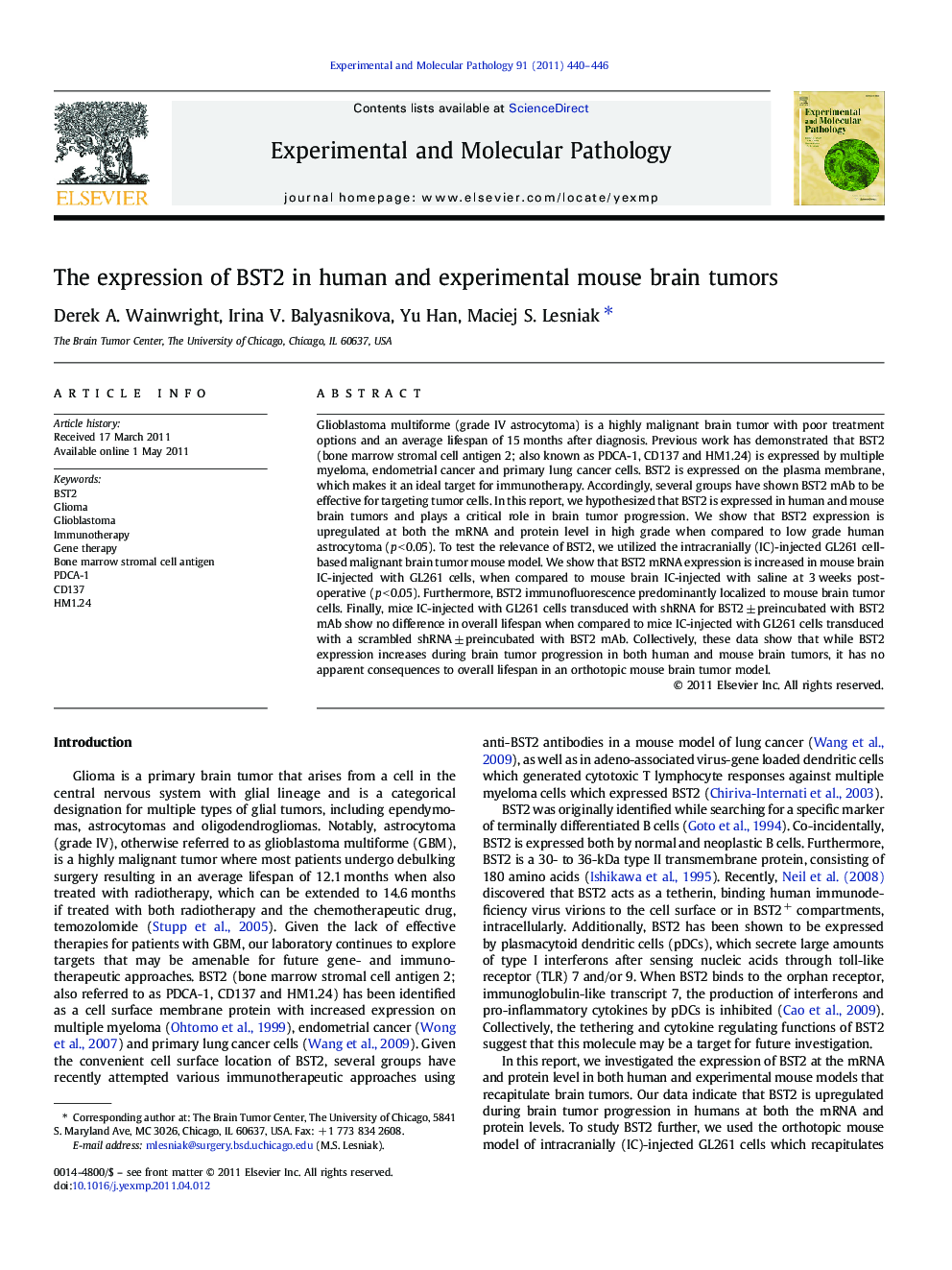| Article ID | Journal | Published Year | Pages | File Type |
|---|---|---|---|---|
| 2775464 | Experimental and Molecular Pathology | 2011 | 7 Pages |
Glioblastoma multiforme (grade IV astrocytoma) is a highly malignant brain tumor with poor treatment options and an average lifespan of 15 months after diagnosis. Previous work has demonstrated that BST2 (bone marrow stromal cell antigen 2; also known as PDCA-1, CD137 and HM1.24) is expressed by multiple myeloma, endometrial cancer and primary lung cancer cells. BST2 is expressed on the plasma membrane, which makes it an ideal target for immunotherapy. Accordingly, several groups have shown BST2 mAb to be effective for targeting tumor cells. In this report, we hypothesized that BST2 is expressed in human and mouse brain tumors and plays a critical role in brain tumor progression. We show that BST2 expression is upregulated at both the mRNA and protein level in high grade when compared to low grade human astrocytoma (p < 0.05). To test the relevance of BST2, we utilized the intracranially (IC)-injected GL261 cell-based malignant brain tumor mouse model. We show that BST2 mRNA expression is increased in mouse brain IC-injected with GL261 cells, when compared to mouse brain IC-injected with saline at 3 weeks post-operative (p < 0.05). Furthermore, BST2 immunofluorescence predominantly localized to mouse brain tumor cells. Finally, mice IC-injected with GL261 cells transduced with shRNA for BST2 ± preincubated with BST2 mAb show no difference in overall lifespan when compared to mice IC-injected with GL261 cells transduced with a scrambled shRNA ± preincubated with BST2 mAb. Collectively, these data show that while BST2 expression increases during brain tumor progression in both human and mouse brain tumors, it has no apparent consequences to overall lifespan in an orthotopic mouse brain tumor model.
